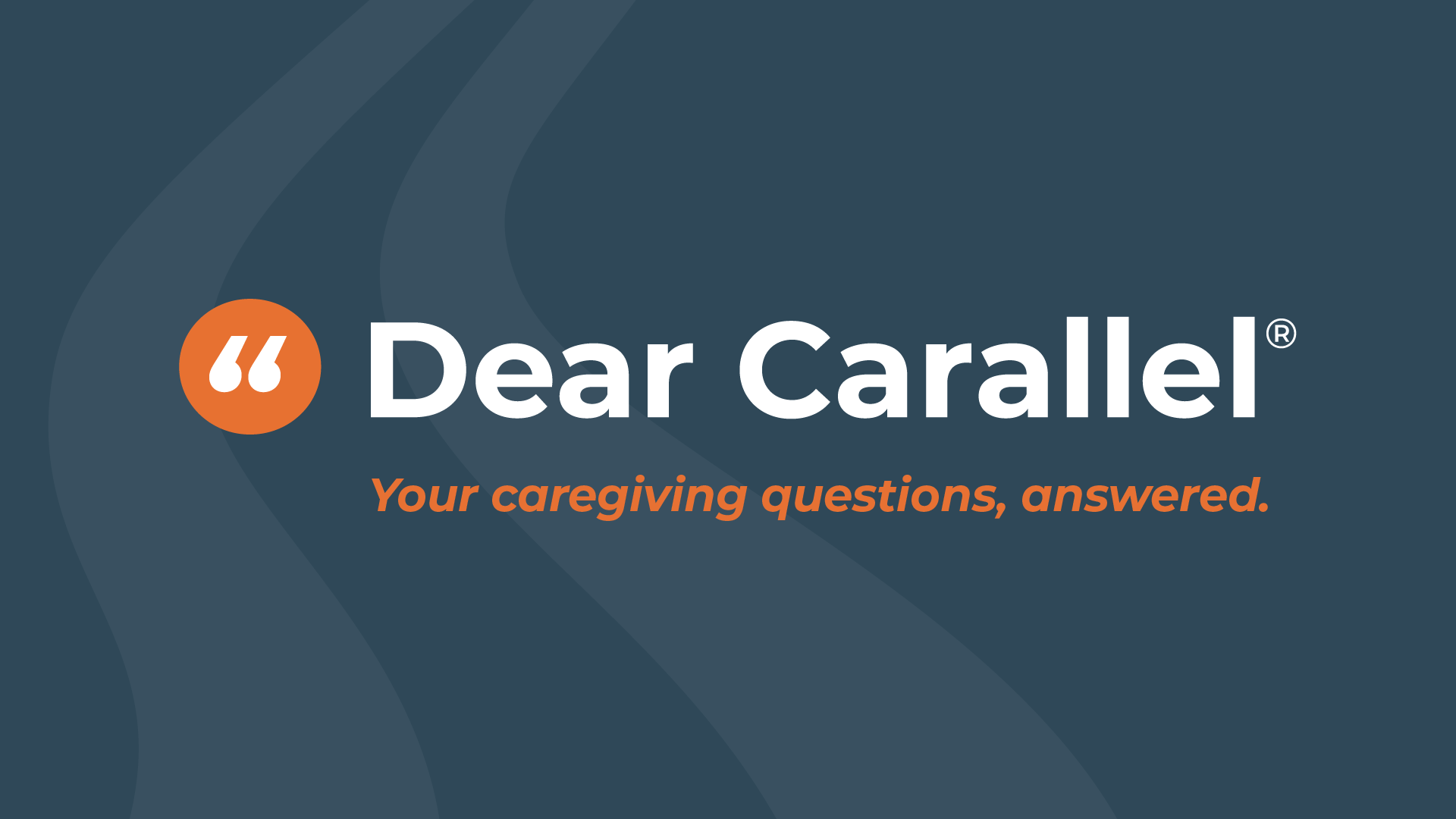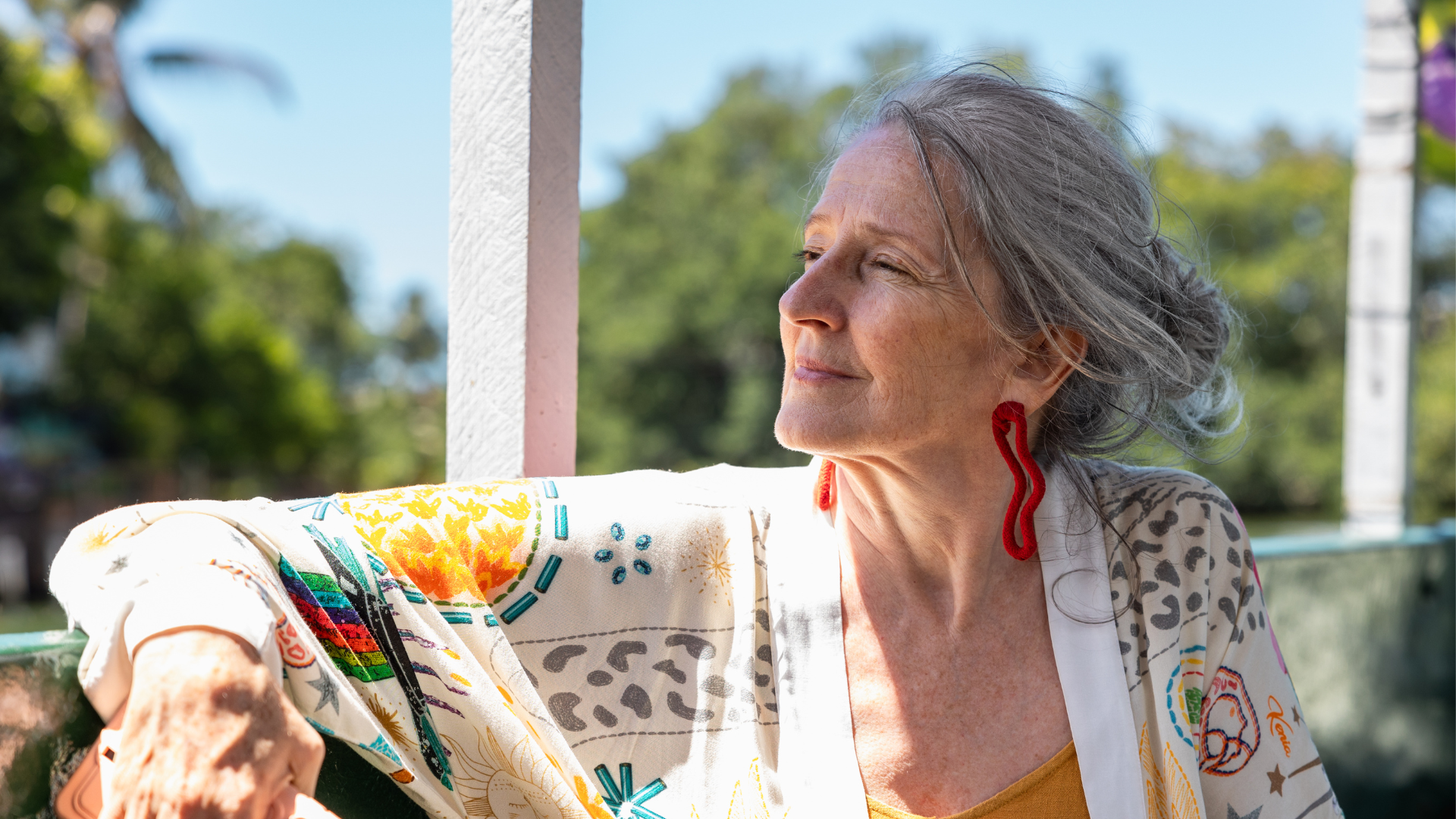Caregiver Question | 08/24/23
Dad’s moving in. My stress level is through the roof!

DEAR CARALLEL: My mom died suddenly two years ago and my dad will be moving in with us in a couple of weeks. He was doing ok in the immediate aftermath of mom’s death, I think because he was in shock and running on adrenaline. He was still keeping to their routines and managing the house and staying in touch with their friends.
Well that didn’t last. As time has gone on, he’s slowed down quite a bit to the point where I don’t think it’s safe or healthy for him to be living alone. He has pretty much stopped cooking altogether and is way too relaxed about keeping up with his doctor appointments. He doesn’t even want to spend time with his friends and just stays home most days.
He’s very close with my husband and my kids, and I believe in my heart that suggesting he move in with us was the right thing to do. It feels like the only time he’s actually himself is when we are all together. But now that it’s a matter of days before he moves in, my stress level is through the roof.
What’s it going to be like when he’s actually here?!? I’m concerned about having less privacy and staying on top of the kids’ schedules. Will I be able to manage the stress of it all? How do people do this? — Maya in Kentwood, MI
DEAR MAYA: My condolences on the loss of your mother. My heart breaks for you all.
Firstly, whether or not your dad was moving in with you, he is lucky to have you. I could feel the love you have for him, and the tender care you show him, jumping off the screen as I read your email.
Secondly, it’s worth noting that you’re now (and it sounds like you have been) part of what’s known as the sandwich generation. You’re one of the millions of U.S. adults who are caring for an aging parent while also raising and supporting minor or adult children. I mention this because when I was in a similar position, I found bits of comfort from knowing that I wasn’t alone.
Now thirdly, the journey you’re about to set out on will likely be wonderfully rewarding. There’s also no doubt that being part of the sandwich generation brings with it a particularly intense kind of stress.
The number of your stressors is about to multiply significantly while you’ll have less time to yourself to process and manage them.
But there are things you can be doing to stay ahead of it. So here are a few tips to get you started.
Talk about it
This one might seem obvious but it’s critical. And you’re already doing it, as evidenced by the fact that you sent in this email.
Talking about our situation can feel uncomfortable to some because of the personal nature of the subject matter, not wanting to be a burden etc. But it’s a great, and achievable, first step toward putting supports in place to help us healthily manage all that we have on our plate as sandwich generation caregivers.
So whether you’re talking with your doctor, a friend, or family member, it’s almost always worth it in my opinion. And it also has the added benefit of enabling us to get things off our chest which in and of itself, is very important.
Identify our stressors
When it comes to how we each experience stress as part of the sandwich generation, it’s common to feel the cumulative weight of all the different pressures on our shoulders.
But to more effectively manage it, it’s helpful to break the cumulative weight down into its individual parts by asking ourselves: what is actually stressing us?
Is it financial? Child care? Coordinating a parent’s care? Our own health? Guilt about not being able to manage it all? Time constraints?
Chances are there will be many culprits, and each will need to be tackled individually. Before we can do that though, we need to be able to see each stressor for what it is.
Think in terms of buffers and barriers
There isn’t a magic wand we can wave to make this easy. However there’s one skill that comes close. Asking for (and accepting) help.
The challenge is that it can be hard to pinpoint exactly what we need help with in the heat of the moment. One trick you can use to do that is to think about your care responsibilities in terms of barriers and buffers.
Buffers
These are the things that are going well. You don’t need help with them but you should celebrate them–because whether we’re talking about caring for our children or our parents there is no victory too small to be celebrated. Please keep that in mind for the future. 😁
Barriers
These are the things that aren’t gong so well. Think about them. Then think about what kind of help would alleviate the strain you’re feeling.
Rides from school? Rides for your dad? Someone to spend time with dad while you’re at work? Running errands on Thursdays? A babysitter Monday afternoons? House cleaning? Your own health?
Once you have your barriers on paper, you now have a list of the things that you need help with. From there, you can begin asking for help when and where you need it from friends, family, professionals, and/or local organizations.
Collectively, these people and organizations will become your care team–and they’ll be an invaluable asset and source of community as you navigate living life in the sandwich generation.
✨
You’re already ahead of the game, Maya. Your dad hasn’t even moved in yet and you’re already talking about it. That’s an example of you translating your self-awareness into proactive action–and it’s fantastic.
I’ll be thinking of you!
–Jennifer, Carallel Care Advocate
The latest from Carallel

Caregiver Journey Webinar
A Caregiver Conversation by Carallel: Helping Children Adjust When a Loved One Moves In
We dive into the practical realities of moving the person you're caring for into your home - and offer simple tips for helping children adjust....

Blog
The ‘Invisible Second Patient’: Understanding the Role of Dementia Caregivers
There are 16 million Americans caring for a loved one with Alzheimer’s disease or a related dementia today. Despite the group’s sheer size, they...
